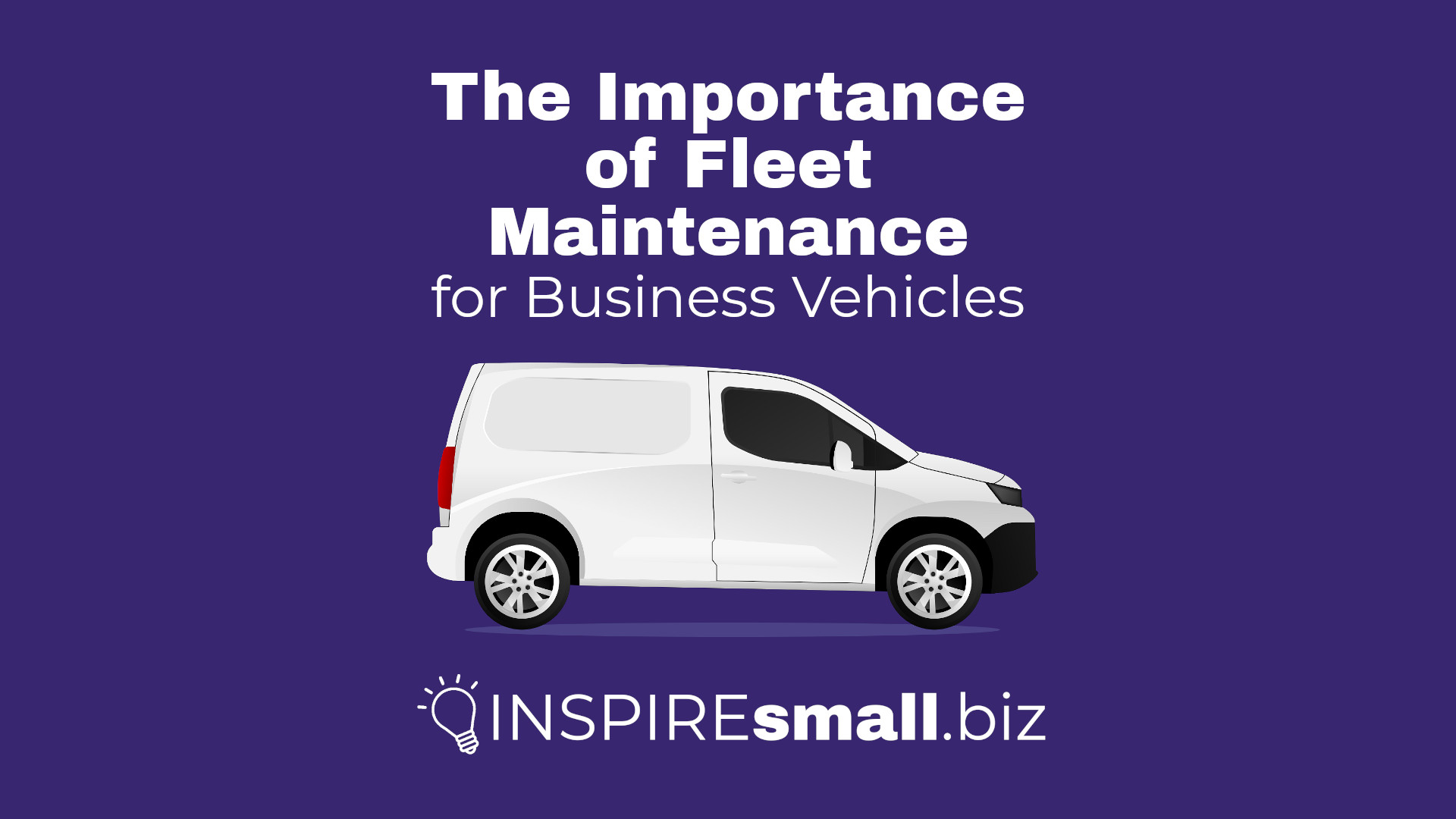For businesses that rely on vehicles to operate, from delivery services to construction companies, fleet maintenance is an essential component of success. Your fleet of vehicles represents a significant investment and, more importantly, serves as a lifeline for many business operations. Whether it’s delivering products, transporting employees, or hauling equipment, your vehicles are critical to meeting customer expectations and maintaining efficiency.
Regular fleet maintenance not only ensures the safety and reliability of your vehicles but also saves your business time and money in the long run. Here’s why keeping up with fleet maintenance should be a top priority for any business relying on vehicles.
For help with this subject, check out INSPIREsmall.biz members who offer Fleet Maintenance.
Ensuring Safety on the Road
The safety of your drivers and the public should always come first, and regular maintenance is the key to preventing dangerous vehicle malfunctions. A well-maintained vehicle is far less likely to experience problems such as brake failure, tire blowouts, or engine breakdowns, which can lead to accidents and even legal liabilities.
Routine inspections can identify potential issues before they become serious, allowing you to address them proactively. Preventative maintenance, such as checking tire pressure, brake systems, lights, and engine performance, ensures your vehicles are road-ready at all times.
A commitment to fleet maintenance is also a sign of a responsible company culture. When employees see that the business prioritizes vehicle safety, they are more likely to take their own driving and vehicle care seriously, fostering a safer work environment overall.
Minimizing Downtime and Increasing Efficiency
Unplanned breakdowns or repairs can bring your business operations to a halt. When a vehicle is out of commission, it can cause delays in deliveries, disrupt schedules, and lower productivity. For businesses with tight deadlines or high customer expectations, this downtime can harm your reputation and lead to financial losses.
Regular maintenance helps minimize the risk of unexpected breakdowns, keeping your vehicles on the road and your business running smoothly. By scheduling routine check-ups, oil changes, and part replacements, you can prevent costly repairs that arise from neglecting minor issues. A well-maintained fleet is a reliable fleet, allowing your business to operate efficiently with fewer interruptions.
Moreover, properly maintained vehicles run more smoothly and use less fuel. By keeping your fleet in top condition, you reduce fuel consumption and lower operational costs, which ultimately leads to a more profitable business.
Extending the Lifespan of Your Vehicles
Your fleet is a major investment, and like any business asset, you want it to last as long as possible. Regular maintenance can significantly extend the lifespan of your vehicles, maximizing the return on your investment.
Neglecting routine upkeep leads to faster wear and tear, which can cause parts to break down prematurely and force you to replace vehicles sooner than expected. Small issues, such as fluid leaks or worn-out belts, can lead to much larger problems if left unaddressed. However, regular maintenance ensures that these smaller concerns are fixed promptly, protecting your fleet from major mechanical failures that can be costly to repair or replace.
Maintaining your vehicles properly can also help you retain their resale value. Should you decide to upgrade your fleet, a well-documented maintenance history shows potential buyers that the vehicles have been properly cared for, increasing their market value.
Complying with Legal and Regulatory Requirements
Many industries require businesses to adhere to strict vehicle maintenance and safety regulations, especially for companies involved in logistics, transportation, and delivery. Ensuring that your fleet is up to code isn’t just good business practice—it’s often a legal necessity.
For instance, in the United States, the Federal Motor Carrier Safety Administration (FMCSA) requires commercial vehicles to meet certain standards for safety and performance. Failure to comply with these regulations can result in fines, penalties, and even the suspension of your business operations.
An ongoing fleet maintenance program helps your business stay in compliance with these regulations. Regular inspections and documentation ensure that your vehicles meet all required safety standards, reducing the risk of legal issues and keeping your business operating within the law.
Reducing Long-Term Costs
While it may seem like an added expense, investing in regular fleet maintenance can actually save your business money in the long run. Preventative maintenance helps you avoid costly repairs, minimize downtime, and extend the life of your vehicles. By catching potential problems early, you can address them before they escalate into expensive fixes.
For example, neglecting routine oil changes or ignoring dashboard warning lights can lead to major engine problems, requiring thousands of dollars in repairs or even the complete replacement of the vehicle. Regularly servicing your fleet ensures that minor issues don’t develop into major ones, saving your business from significant financial strain.
Additionally, a well-maintained vehicle runs more efficiently, using less fuel and reducing overall operating costs. Preventing breakdowns also avoids the need for expensive roadside assistance and emergency repairs, keeping your budget in check.
Enhancing Your Business Reputation
Your vehicles are often the face of your business, especially if they are branded with your company logo or colors. When customers see a clean, well-maintained vehicle arriving at their home or worksite, it creates a positive impression of your business. On the other hand, a poorly maintained or broken-down vehicle can raise concerns about the professionalism and reliability of your company.
Regular fleet maintenance ensures that your vehicles are always in top condition, reflecting positively on your brand. Customers are more likely to trust a business that takes care of its equipment, which can lead to repeat business, positive reviews, and increased word-of-mouth referrals.
Boosting Employee Satisfaction and Productivity
When you provide your employees with reliable, well-maintained vehicles, it demonstrates that you care about their safety and working conditions. Employees who feel supported and safe on the job are more likely to be productive and satisfied with their work.
On the flip side, unreliable vehicles that frequently break down or require costly repairs can lead to frustration and stress among your drivers. This can result in lower productivity, decreased morale, and higher turnover rates. By maintaining your fleet properly, you keep your employees happy and focused on their tasks, contributing to a more efficient and positive work environment.
The Value of Fleet Maintenance for Your Business
Fleet maintenance is not just a routine task—it’s a crucial aspect of running a successful business that relies on vehicles. Whether you’re managing a few company cars or a large fleet of trucks, regular maintenance ensures the safety, efficiency, and longevity of your vehicles. It helps reduce operational costs, prevent breakdowns, and keeps your business compliant with legal regulations.
By investing in a proactive fleet maintenance program, you safeguard your business from unexpected expenses, improve employee productivity, and enhance your company’s reputation. In the long run, regular fleet maintenance pays off by helping you maintain a reliable and efficient operation, allowing you to focus on serving your customers and growing your business.
For help with this subject, check out INSPIREsmall.biz members who offer Fleet Maintenance.



